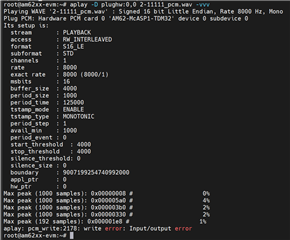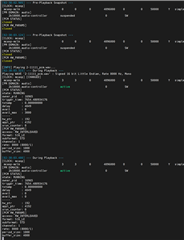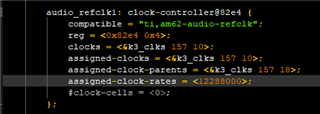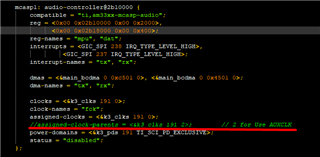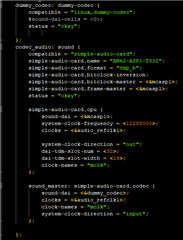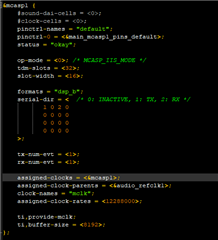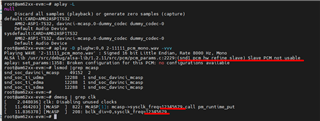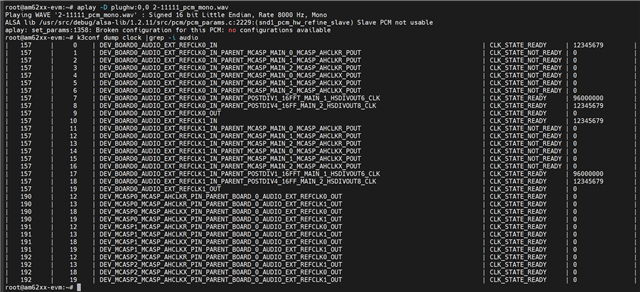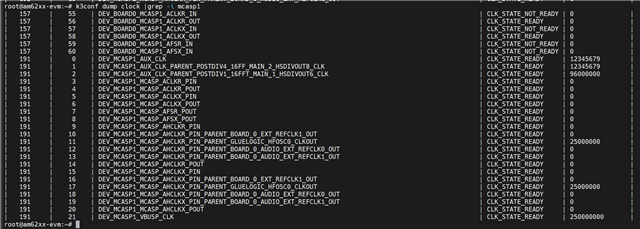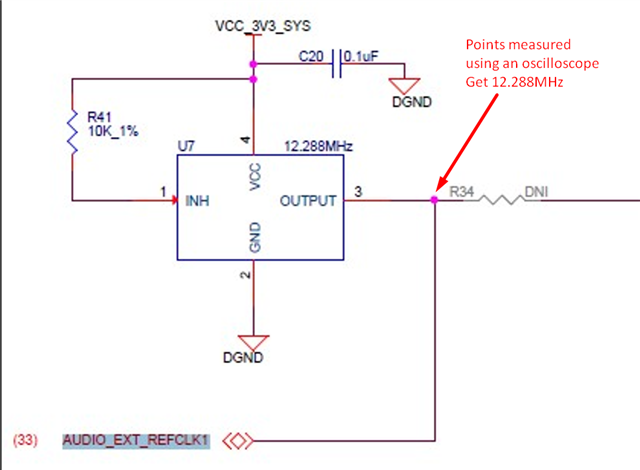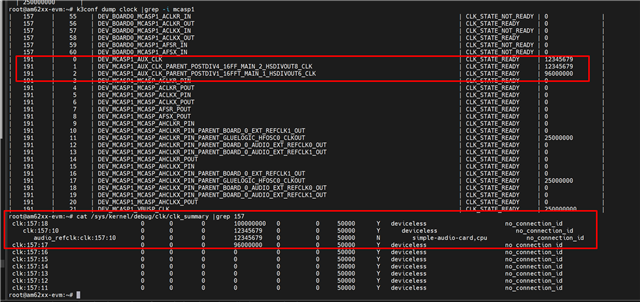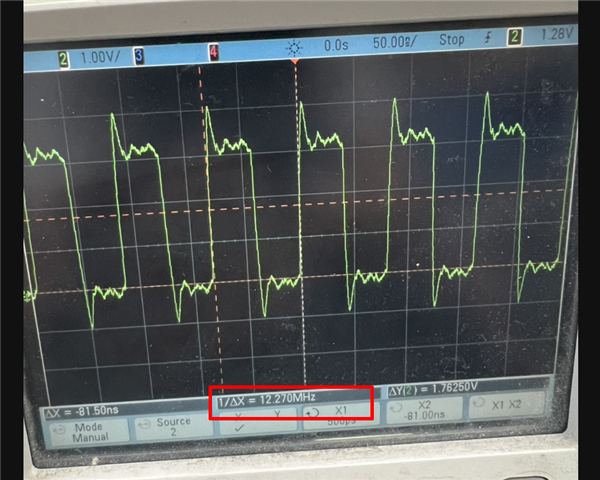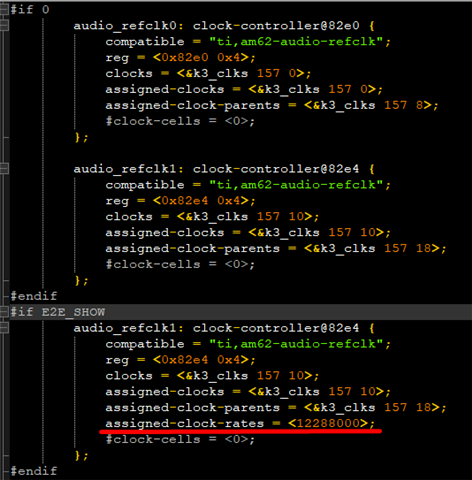Other Parts Discussed in Thread: SK-AM62B-P1
Tool/software:
Hi Experts,
Test environment: SK-AM62B-P1 EVM & sdk-linux-am62xx-evm-11.00.09.04
Goal: Use McASP as independent 32 (TX/RX) sound channels (FS: 8K, CLK: 2M, 32 timeslot, 8 bits/timeslots mono), can play 32 sounds independently, record 32 channels independently, no Codec (not controlled by AM62x CPU)
Expected to achieve:
Use MCASP1 interface to generate fixed PCM signal
When executing aplay -D plughw:0,X test.wav (file format is also 8K/mono/ 16bits A/Mu law), you can see these signals (FS/CLK/...) appear in Codec TLV320.
Question 1: In the following method, I first use Dummy-Codec to replace TLV320, but I don't know if there is a more suitable sound card/codec settings to meet my actual needs?
Modifications for Dummy-Codec:
1. Download dummy-codec.c and modify .compatible = "linux,dummy-codec", recompile the Kernel
refer to the link: https://gitlabhost.argos-navy.ru/rockchip/rongpin/rk3588_android12/-/blob/master/kernel-5.10/sound/soc/codecs/dummy-codec.c
2. The DTS part is as follows:
A. Remove tlv320_mclk: clk-0, codec_audio: sound and &mcasp1 in k3-am62x-sk-common.dtsi
B. Add the following content to the root node of k3-am625-sk.dts
dummy_codec: dummy-codec {
compatible = "linux,dummy-codec";
#sound-dai-cells = <0>;
status = "okay";
};
mcasp_mclk: mcasp-mclk {
#clock-cells = <0>;
compatible = "fixed-clock";
clock-frequency = <2048000>; // 2.048MHz
};
codec_audio: sound {
compatible = "simple-audio-card";
simple-audio-card,name = "AM62x-Dummy";
simple-audio-card,format = "dsp_b";
//simple-audio-card,bitclock-inversion;
simple-audio-card,bitclock-master = <&mcasp1>;
simple-audio-card,frame-master = <&mcasp1>;
status = "okay";
simple-audio-card,cpu {
sound-dai = <&mcasp1>;
};
sound_master: simple-audio-card,codec {
sound-dai = <&dummy_codec>;
clocks = <&mcasp_mclk>;
};
};
sound_master: simple-audio-card,codec {
sound-dai = <&dummy_codec>;
clocks = <&mcasp_mclk>;
};
C. Add the following at the end of this file
&mcasp1 {
#sound-dai-cells = <0>;
pinctrl-names = "default";
pinctrl-0 = <&main_mcasp1_pins_default>;
status = "okay";
op-mode = <0>; /* MCASP_IIS_MODE */
tdm-slots = <32>;
slot-width = <8>;
serial-dir = < /* 0: INACTIVE, 1: TX, 2: RX */
1 0 2 0
0 0 0 0
0 0 0 0
0 0 0 0
>;
tx-num-evt = <1>;
rx-num-evt = <1>;
ti,buffer-size = <8192>;
};
The test results are as follows:
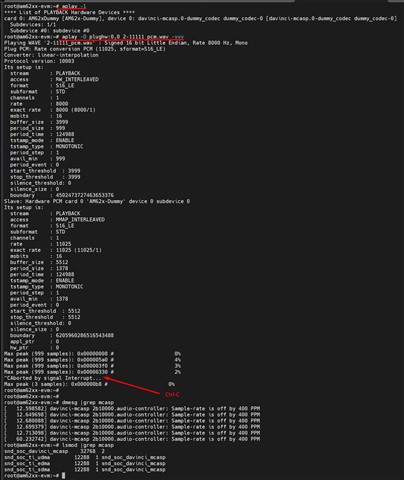
Question 2: It seems that aplay cannot continue to execute, it stops somewhere, and there is no signal output on the oscilloscope. Which part is the problem?
Best Regards,
Brian


